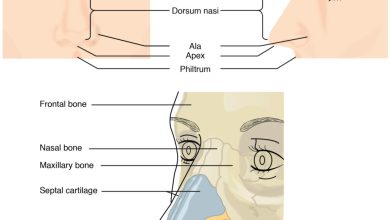Everything You Need To Know About Whey Protein

Last Updated on March 7, 2024 by admin
People these days commonly use protein powders before or after workouts to increase their protein intake, which is vital for recovering the muscles and building them alongside other benefits.
The most commonly used proteins are Whey and Casein. Whey Protein is known by everyone, but what really is it?
In this article, we are going to help you get a better understanding of whey protein, its benefits and its risks.
What is Whey Protein?
There are two components in milk- Whey and Casein. Whey protein is separated from the casein in milk or can be formed during the process of making cheese. Whey is low in lactose and has all essential amino acids; that’s why it is considered a complete protein.
It is typically found in the form of powder and can be then added to liquids or soft foods.
Whey Protein or Casein- which one do I need?
Now, most people have this question in mind if two types of proteins – whey and casein are available, which one do we need?
So, keeping it as simple as possible, we will answer your question.
The body quickly absorbs whey. It is also faster absorbed than casein.
Casein protein will work well for you if your workout is not very tough.
But if your workout session is very tough and you are doing body building or working out more than once a day, you will need whey protein.
Whey protein will aid your muscles immediately after the workout and help with bodybuilding.
Protein powders with a mix of whey and casein are also available.
How To Use Whey Protein?
Different flavours of Whey Protein are available in powdered form in the market, and there are various brands out there for you to choose from. Pre-made protein shakes, protein liquids, or protein bars are also available in wide varieties and flavours. Protein and energy bars are good as they provide you with immediate energy and protein with different nutties, flavours and healthy edibles. Check out Best Energy Bars In India for a guide to good protein and energy bars.
Another good way to have whey protein is to make a protein shake by yourself because then you know what goes in it. Making protein shakes by yourself, you can add everything from your personal choice and requirements.
Benefits Of Whey Protein
- Aids Weight Loss: Consuming whey protein helps reduce fat loss by reducing your appetite and boosting metabolism. And while it helps you lose weight, it also maintains the right muscle mass in your body.
- Promotes muscle building and growth: Strength training supported by high protein intake like whey protein is an evident way of building a good muscle mass. It contains growth-promoting amino acids, which makes it better at maintaining muscle mass than other proteins.
- It may enhance the antioxidant defences of your body: Glutathione is one of the essential antioxidants in the body, which is not gained from the diet but produced by the body itself. Glutathione production depends on the supply of some amino acids, such as cysteine. Whey protein is high in cysteine, and for this reason, it may boost the body’s natural antioxidant defences.
- It may help with Type 2 Diabetes: Researchers have found that whey protein effectively moderates blood sugar levels and keeps these levels within healthy limits. It seems to be working better than other protein sources and can be used as a supplement to treat Type 2 diabetes.
- Whey protein may help in reducing Inflammation: Many studies have shown that whey protein supplements taken in high dosage may reduce C-reactive proteins, which are a significant source of inflammation in the body.
People these days commonly use protein powders before or after workouts to increase their protein intake, which is vital for recovering the muscles and building them alongside other benefits.
The most commonly used proteins are Whey and Casein. Whey Protein is known by everyone, but what really is it?
In this article, we are going to help you get a better understanding of whey protein, its benefits and its risks.
What is Whey Protein?
There are two components in milk- Whey and Casein. Whey protein is separated from the casein in milk or can be formed during the process of making cheese. Whey is low in lactose and has all essential amino acids; that’s why it is considered a complete protein.
It is typically found in the form of powder and can be then added to liquids or soft foods.
Whey Protein or Casein- which one do I need?
Now, most people have this question in mind if two types of proteins – whey and casein are available, which one do we need?
So, keeping it as simple as possible, we will answer your question.
The body quickly absorbs whey. It is also faster absorbed than casein.
Casein protein will work well for you if your workout is not very tough.
But if your workout session is very tough and you are doing body building or working out more than once a day, you will need whey protein.
Whey protein will aid your muscles immediately after the workout and help with bodybuilding.
Protein powders with a mix of whey and casein are also available.
How To Use Whey Protein?
Different flavours of Whey Protein are available in powdered form in the market, and there are various brands out there for you to choose from. Pre-made protein shakes, protein liquids, or protein bars are also available in wide varieties and flavours. Protein and energy bars are good as they provide you with immediate energy and protein with different nutties, flavours and healthy edibles. Check out Best Energy Bars In India for a guide to good protein and energy bars.
Another good way to have whey protein is to make a protein shake by yourself because then you know what goes in it. Making protein shakes by yourself, you can add everything from your personal choice and requirements.
Benefits Of Whey Protein
- Aids Weight Loss: Consuming whey protein helps reduce fat loss by reducing your appetite and boosting metabolism. And while it helps you lose weight, it also maintains the right muscle mass in your body.
- Promotes muscle building and growth: Strength training supported by high protein intake like whey protein is an evident way of building a good muscle mass. It contains growth-promoting amino acids, which makes it better at maintaining muscle mass than other proteins.
- It may enhance the antioxidant defences of your body: Glutathione is one of the essential antioxidants in the body, which is not gained from the diet but produced by the body itself. Glutathione production depends on the supply of some amino acids, such as cysteine. Whey protein is high in cysteine, and for this reason, it may boost the body’s natural antioxidant defences.
- It may help with Type 2 Diabetes: Researchers have found that whey protein effectively moderates blood sugar levels and keeps these levels within healthy limits. It seems to be working better than other protein sources and can be used as a supplement to treat Type 2 diabetes.
- Whey protein may help in reducing Inflammation: Many studies have shown that whey protein supplements taken in high dosage may reduce C-reactive proteins, which are a significant source of inflammation in the body.
People these days commonly use protein powders before or after workouts to increase their protein intake, which is vital for recovering the muscles and building them alongside other benefits.
The most commonly used proteins are Whey and Casein. Whey Protein is known by everyone, but what really is it?
In this article, we are going to help you get a better understanding of whey protein, its benefits and its risks.
What is Whey Protein?
There are two components in milk- Whey and Casein. Whey protein is separated from the casein in milk or can be formed during the process of making cheese. Whey is low in lactose and has all essential amino acids; that’s why it is considered a complete protein.
It is typically found in the form of powder and can be then added to liquids or soft foods.
Whey Protein or Casein- which one do I need?
Now, most people have this question in mind if two types of proteins – whey and casein are available, which one do we need?
So, keeping it as simple as possible, we will answer your question.
The body quickly absorbs whey. It is also faster absorbed than casein.
Casein protein will work well for you if your workout is not very tough.
But if your workout session is very tough and you are doing body building or working out more than once a day, you will need whey protein.
Whey protein will aid your muscles immediately after the workout and help with bodybuilding.
Protein powders with a mix of whey and casein are also available.
How To Use Whey Protein?
Different flavours of Whey Protein are available in powdered form in the market, and there are various brands out there for you to choose from. Pre-made protein shakes, protein liquids, or protein bars are also available in wide varieties and flavours. Protein and energy bars are good as they provide you with immediate energy and protein with different nutties, flavours and healthy edibles. Check out Best Energy Bars In India for a guide to good protein and energy bars.
Another good way to have whey protein is to make a protein shake by yourself because then you know what goes in it. Making protein shakes by yourself, you can add everything from your personal choice and requirements.
Benefits Of Whey Protein
- Aids Weight Loss: Consuming whey protein helps reduce fat loss by reducing your appetite and boosting metabolism. And while it helps you lose weight, it also maintains the right muscle mass in your body.
- Promotes muscle building and growth: Strength training supported by high protein intake like whey protein is an evident way of building a good muscle mass. It contains growth-promoting amino acids, which makes it better at maintaining muscle mass than other proteins.
- It may enhance the antioxidant defences of your body: Glutathione is one of the essential antioxidants in the body, which is not gained from the diet but produced by the body itself. Glutathione production depends on the supply of some amino acids, such as cysteine. Whey protein is high in cysteine, and for this reason, it may boost the body’s natural antioxidant defences.
- It may help with Type 2 Diabetes: Researchers have found that whey protein effectively moderates blood sugar levels and keeps these levels within healthy limits. It seems to be working better than other protein sources and can be used as a supplement to treat Type 2 diabetes.
- Whey protein may help in reducing Inflammation: Many studies have shown that whey protein supplements taken in high dosage may reduce C-reactive proteins, which are a significant source of inflammation in the body.




